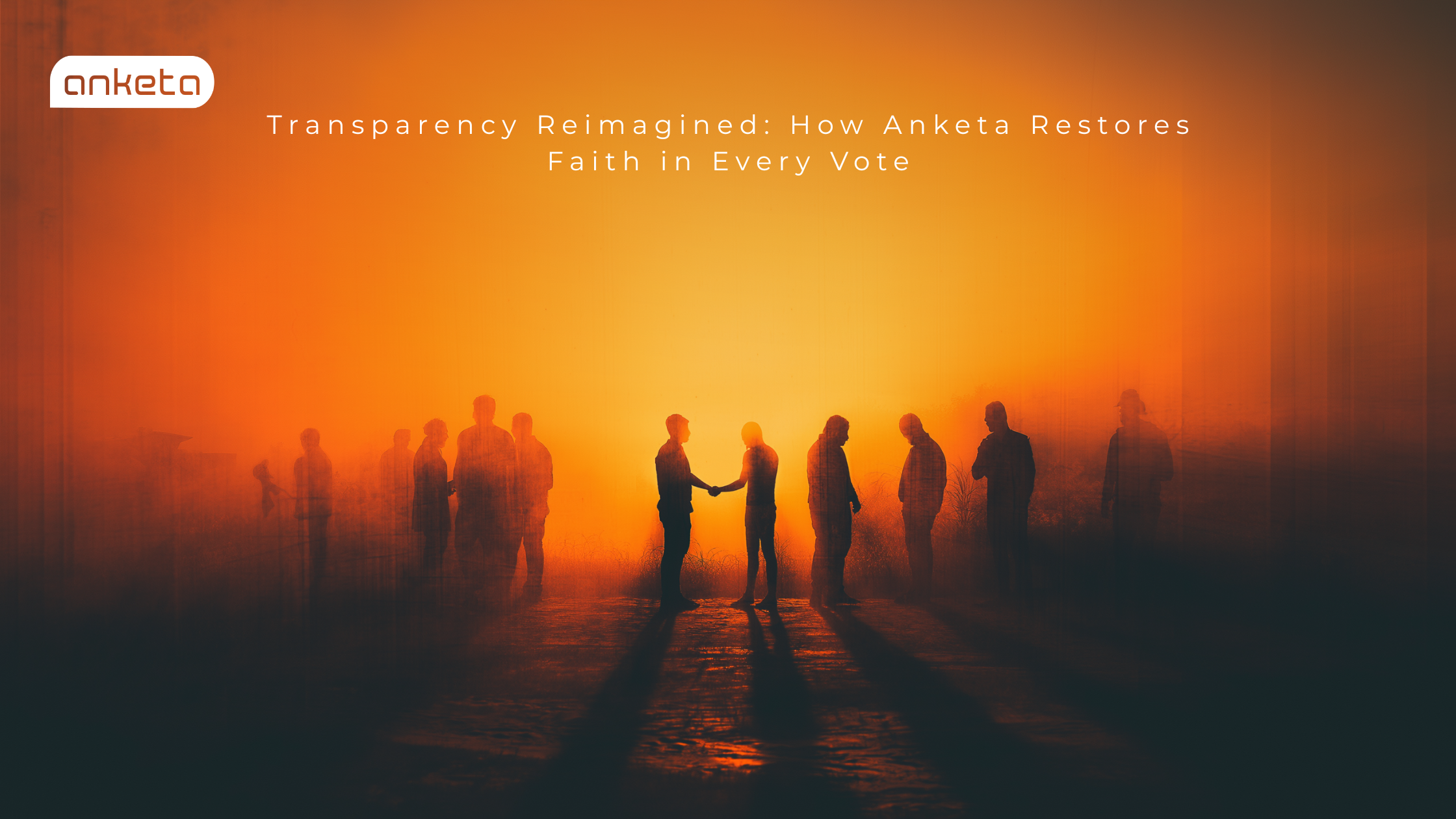Picture this: your local community holds a vote on a new park design. But whispers of tampered results quickly spread, dividing neighbors. Sound familiar? The larger the group—especially when people don’t personally know each other—the faster suspicion grows.
This erosion of trust doesn’t just happen in elections. From corporate boards to condo associations, doubts about fairness poison progress. When people don’t trust the process, they stop trusting each other.
That’s where Anketa comes in: a social polling platform powered by blockchain security. More than just a hosting space for votes, Anketa is designed to rebuild trust from the ground up.
The Trust Crisis: Why Old Systems Fail
Traditional voting systems, such as paper ballots, email surveys, and even most online polls, share the same flaw: transparency.
- Who counts the votes?
- Were they altered?
- Why do poll results often contradict each other within days?
Consider the 2024 U.S. presidential election polling, where radically different results circulated within a 24- to 48-hour span. No wonder people remain skeptical. A 2022 Pew Research study found that 67% of Americans distrust election integrity.
As sociologist Dr. Linda Hartman notes: “People don’t argue over outcomes; they argue over process.” Without transparency, groups fracture, and trust collapses.
Anketa’s Tech Toolkit: Built for Trust
Anketa directly addresses this crisis with four trust-driven features:
- Blockchain Immutability: Every vote is locked into a decentralized ledger, similar to a digital notary. Once recorded, it can’t be edited or deleted. It’s tamper-proof by design.
- Real-Time Results Dashboard: Track votes in real time, like a stock ticker for democracy. No delays, no whispers, no hidden counts.
- Social Media Meets Democracy: Debate polls in-app with forums, comments, and reactions. Transparency isn’t just about results; it’s about dialogue.
- Military-Grade Security: End-to-end encryption and anonymized data ensure privacy, while third-party audits keep systems accountable.
The Science of Trust: Why Anketa Works
Anketa’s design isn’t accidental. It’s built on proven trust principles.
- Social Capital Boost: Research by sociologist Robert Putnam shows that trust (“social capital”) strengthens communities. By making every step visible, Anketa fosters that trust.
- Ethical Tech Design: Unlike opaque algorithms, Anketa’s open architecture aligns with MIT’s Ethics of Technology principles, prioritizing user control and accountability.
- Deliberative Democracy in Action: Philosopher Jürgen Habermas envisioned decisions shaped by open debate. Anketa’s built-in forums make this vision real, blending votes with voices.
Cybersecurity as a Trust Catalyst
In an era of data breaches, people don’t just want security; they need proof. Anketa delivers both.
- Independent audits (like those used in banking) verify system integrity.
- GDPR-compliant data practices ensure global privacy standards.
- Constant monitoring reinforces the platform as a vault for trust.
Security isn’t a backdrop. It’s central to Anketa’s mission.
Transparency in Action: Where Social Media Meets Democracy
Traditional polls feel transactional. Anketa transforms them into conversations.
- React to proposals with emojis.
- Tag peers in debates.
- Share polls to grow participation.
It’s like Twitter meets Town Hall, but with verified, blockchain-backed results.
Why Trust Drives Success
Groups thrive when trust flows. Whether deciding on office snacks or multi-million-dollar budgets, people engage when they know their voices count.
Anketa is a trust revolution. By combining transparency, dialogue, and security, it dissolves doubt and builds stronger communities.
Takeaway: Don’t Just Make Decisions; Make Believers
In a fractured world, trust is the most valuable currency. Anketa proves that technology, designed with integrity, can restore it. Decisions matter, but trust makes them stick.
With Anketa, every vote is sealed via blockchain, every debate is open, and every outcome is fair.
Join the ANKETA BETA today. Turn your opinions into currency, your debates into data, and your likes into legacy. The future isn’t just digital—it’s democratic.









